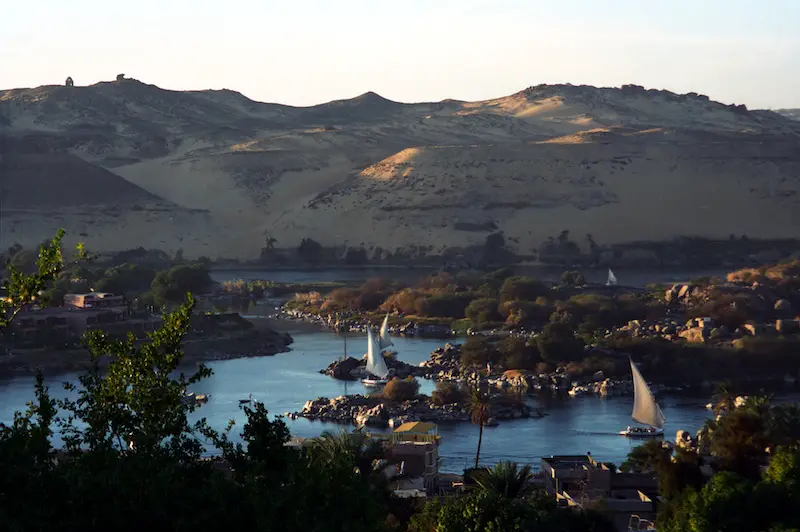At 4135 miles (6654 km) in length, the Nile River in Africa is the longest river in the world. Now, according to a new study, it may be amongst the oldest as well. Last month, a research study was published that incites the Nile could be more than 9 million years older than previously thought, remaining largely unchanged for millennia due to a unique connection with the Earth, which also allows it to run south to north, a property that is unusual in its own right.
According to researchers from the University of Texas, the Nile actually has a connection with the planet’s deep mantle, which is the geological undercurrents that move rock and magma just as ocean currents move water. Apparently, under the earth that the Nile flows over there is a “conveyor belt-like movement” in the mantle that has helped to not only build up the Ethiopian Highlands, but also create a slightly downward slant in northern Africa. That slant is what keeps the river moving towards the Mediterranean Sea.
This unusual geological find has helped to keep the Nile flowing in the same direction and remain relatively unchanged for millions of years. This helps to solve a long-standing mystery about the river, which hasn’t seen any significant shifts in its course in hundreds of thousands of years. Beyond that however, the researchers conducting the study say that they think they have nailed down the relative age of the Nile too, saying that they believe that it is around 30 million years old, which is thought to be about six times older than previously believed.
If that is true, it would put the Nile amongst the oldest rivers on the planet, although considerably younger than the oldest. That distinction typically goes to the ironically-named New River in the eastern U.S., the Meuse in Europe, and the Finke in Western Australia. Each of those is believed to be in the 300+ million year old range, with the Finke estimated to be around 350-400 million years old.
These kinds of studies are always good for putting into perspective just how short of a time we humans have been on this planet and how it is likely to continue to exist long after we’re gone. Truly humbling stuff.
- Gear Review: The Xero Scrambler Mid is an Ultralight Hiking Shoe for Spring - March 1, 2023
- Gear Review: Yeti Roadie 48 Wheeled Cooler - August 18, 2022
- Kristin Harila Continues Pursuit of 8000-Meter Speed Record - August 16, 2022
